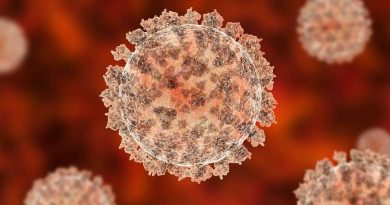Penis cancer: How GPs mistake it for a sexual disease
How GPs mistake penis cancer for a sexual disease… and it can rob a man of his genitals
- Hundreds of British men are forced to undergo life-altering surgery every year because doctors are missing the warning signs of penis cancer, experts say
- Disease, which affects around 700 men every year, can be cured if spotted early, with little impact on sex life
- Studies show half of all penis cancers are diagnosed at a late stage – when it’s impossible to save the organ; a fifth of patients die from the disease
Hundreds of British men are forced to undergo life-altering surgery every year because doctors are missing the warning signs of penis cancer, experts say.
The disease, which affects around 700 men every year, can be cured if spotted early, with little impact on sex life.
But studies show half of all penis cancers are diagnosed at a late stage – when it’s impossible to save the organ. And a fifth of patients die from the disease.
The cancer is often mistaken by GPs and sexual-health nurses for a sexually transmitted infection, as the initial symptoms are usually small lesions or red patches.
‘It’s really common for doctors to misdiagnose penile cancer,’ says Arie Parnham, consultant urological surgeon at The Christie NHS Foundation Trust in Manchester, and the UK’s leading expert in the disease.
‘This is a relatively rare cancer, so most GPs will see it only two or three times in their career. What’s more, there are loads of relatively harmless diseases that lead to red patches on the penis which aren’t cancer, so doctors really have to know what to look for.’

One man who was diagnosed late with penile cancer is Gavin Brooks, 44, from Crewe, who began to experience symptoms in July 2021. The Army officer noticed the skin around his foreskin had begun to swell. (He is pictured with his son, Jorje)
Mr Parnham and other urologists are calling for GPs to receive better education about the disease, to reduce the number of late diagnoses. ‘This disease is killing men every year, but we never talk about it,’ says Marc Lucky, consultant urologist and surgeon at Aintree University Hospital NHS Foundation Trust in Liverpool.
‘The NHS needs to do more to ensure these patients are diagnosed and treated early.’
Doctors believe there are two main causes of penis cancer. The human papilloma virus (HPV), a sexually transmitted infection that triggers a range of other cancers including cervical cancer, is thought to be behind about half the cases.
It is estimated that eight in ten people will be infected with HPV at some point. Normally, the virus lives harmlessly on the skin and the body’s mucous membranes – inside the mouth and around the genitals – causing few problems. Eventually, the immune system clears it. But in rare cases, it can trigger changes in cells that become cancerous.
Following the rollout of the HPV vaccine in 2008 to teenage girls, and in 2019 to boys, experts believe cases of penis cancer will eventually fall, as fewer men will be susceptible to the virus.
However, the other half of cases are thought to be triggered by damage to the skin. Conditions such as phimosis and lichen sclerosus, which lead to inflammation around the foreskin, can lead to the formation of cancerous cells. For this reason, circumcised men are noticeably less likely to get penile cancer.
Signs of the cancer will typically first appear at the top of the penis, either as red patches or white raised spots. When caught at this stage, surgery can be carried out to remove the cancerous tissue, leaving the organ mainly intact. The longer the disease is left untreated, the more invasive the surgery becomes.
One of the most common surgeries to tackle the cancer involves removing the head of the penis. This is then replaced with a skin graft taken from the thigh.

The disease, which affects around 700 men every year, can be cured if spotted early, with little impact on sex life. But studies show half of all penis cancers are diagnosed at a late stage – when it’s impossible to save the organ. And a fifth of patients die from the disease. (File photo)
‘It sounds strange, but it has surprisingly good results,’ says Mr Parnham. ‘If you were in a public shower, I don’t think anyone would notice any difference at a glance.’
This procedure is defined as a ‘penis-preserving’ op – meaning that the organ is still functional.
But figures show in many cases the disease is picked up too late even for this. Analysis carried out by Mr Parnham in 2009 found that 47 per cent of men with penile cancer were diagnosed too late for penis-preserving surgery.
This means that these men had cancer that had spread down through the organ, meaning the entire penis had to be removed.
Early diagnosis is also crucial because, if the cancer spreads into the groin, it becomes deadly.
‘The average survival rate when the cancer is in the penis is around 90 per cent, but if it reaches the pelvis [the bone structure around the groin] that falls to less than 30 per cent,’ says Mr Parnham.
Experts say some sufferers put off seeing a doctor because they are uncomfortable talking about their genitals.
‘If you had a dodgy mole on your shoulder, you’d ask your friends in the pub what they thought, but when it’s your penis, you’re more likely to keep it to yourself,’ says Mr Lucky. ‘You wouldn’t believe the amount of men who come forward only after their wife tells them to.’
One man who was diagnosed late with penile cancer is Gavin Brooks, 44, from Crewe, who began to experience symptoms in July 2021. The Army officer noticed the skin around his foreskin had begun to swell. ‘It was like there was a rubber band around it. After a month the swelling had got worse. It became really painful, and would cut easily.’
Gavin, a single father-of-two, eventually went to his GP, but was initially told there was nothing to worry about. ‘He told me it was likely thrush [a common yeast infection] and would go away.’
But after a second opinion at a sexual health clinic, he was referred to a urologist who diagnosed cancer. But this only came in December, five months after his symptoms began.
He says the diagnosis came as a shock. ‘I’d never even heard of penile cancer before,’ he says.
Gavin has since undergone two operations and is now on chemotherapy, after the cancer spread into his groin. He says he now has to sit down to go to the toilet, due to the extent of the surgery.
Gavin has set up an Instagram page to raise awareness of the disease and says he hopes more men will come forward sooner if they notice symptoms of penile cancer.
What’s the difference between… sarcoma and carcinoma
Sarcoma and carcinoma are both types of cancer. A carcinoma develops in cells that line the organs – such as the kidneys, liver, skin, breasts or prostate – and cavities such as in the chest and abdomen.
Examples include basal cell carcinoma, a common skin cancer, and most breast cancers. Roughly 85 per cent of cancers are carcinomas.
Sarcomas are less common. This type of cancer begins in the connective or supportive tissue such as bone, cartilage, fat, muscle or blood vessels.
Fewer than one in 100 cancers diagnosed every year are sarcomas. Soft-tissue sarcomas usually affect the abdomen, arms or legs.
Source: Read Full Article



